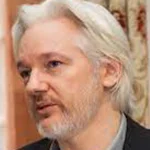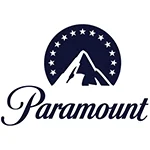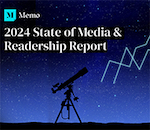Since public and business trust in journalism is at such a low level, media in general need to adopt the “no surprises journalism” policy of the Wall Street Journal.
The policy was explained to the April 6 meeting of the Arthur W. Page Society by WSJ “activism” reporter David Benoit.
|
|
Some attendees thought what Benoit was saying is that WSJ shares stories with subjects before they hit print. That would be a revolution at many media which “check facts” but do not show entire articles to subjects before publication.
WSJ communications director Steve Severinghaus said in an email that WSJ does not share full articles but it practices “no surprises journalism” which means that “subjects are made aware of what we intend to report about them and are given appropriate time to respond to those points.”
Attacking fears that truth might be “dead,” a thought proposed by the April 3 Time mag, the Society reaffirmed its commitment to truth and facts and said journalists and PR people must work closely together.
Benoit is noted for his “scoops and deep reporting,” said Talking Biz News in naming him “Business News Journalist of the Year” in 2015. It is operated by Chris Rouch, Distinguished Scholar in Business Journalism, University of North Carolina at Chapel Hill.
Benoit Hits Hard; O’Reilly: Non-Responder
Benoit covers “activist shareholders and hedge funds and their impact on corporate America.”
Recent stories are on the ouster of Klaus Kleinfeld as CEO of Arconic; proposed ouster of Buffalo Wild Wings CEO Sally Smith; activists who want changes at Whole Foods, and activist pressure on General Motors to have two classes of common stock.
Benoit gives targets a chance to respond to various charges but they have to do that.
 |
An instance of someone not responding in detail to charges although he had chances to do that is Bill O’Reilly, formerly of “The O’Reilly Factor” on Fox News.
He has dismissed sexual harassment charges as “completely unfounded” but has not supplied anything beyond that comment. Exactly why Fox paid $13 million to settle five cases against him has not been revealed.
Gerard Baker, WSJ editor-in-chief who addressed the Page meeting, also called for a “non-confrontational relationship” between the media and story subjects.
Baker points out that social media has given citizens plenty of outlets for their views besides traditional media.
Issue is Fairness
|
|
The main issue on the table is whether media are treating their subjects fairly. Numerous PR and journalism groups are addressing this issue.
A new name entering the picture is the “News Media Alliance,” which is running full page ads in newspapers across America headlined: “Reporters, editors and photographers create real news. Journalism you can trust.”
The Alliance until last September was known as the Newspaper Assn. of America, representing some 2,000 newspapers in the U.S. and Canada. Based in Arlington, it is “the leading voice of the news media industry.”
“Our advocacy, proprietary research and events bring together today’s brightest minds to craft the news media business strategies of tomorrow,” says a statement of purpose. Lindsey Loving is manager of communications.

 David Benoit
David Benoit Lindsey Loving
Lindsey Loving
 Trump Media & Technology Group today reported a $58.2M net loss on $4.1M in 2023 revenues, a disclosure that drove its stock price down 22.6 percent to $47.96.
Trump Media & Technology Group today reported a $58.2M net loss on $4.1M in 2023 revenues, a disclosure that drove its stock price down 22.6 percent to $47.96. Barry Pollack, an attorney at Wall Street’s Harris St. Laurent & Wechsler, has registered Julian Assange as a client with the Justice Dept. “out of an abundance of caution.”
Barry Pollack, an attorney at Wall Street’s Harris St. Laurent & Wechsler, has registered Julian Assange as a client with the Justice Dept. “out of an abundance of caution.” Paramount Global to slash 800 jobs in what chief executive Bob Bakish calls part of an effort to “return the company to earnings growth"... Rolling Stone editor-in-chief Noah Shachtman is exiting at the end of the month due to disagreements with chief executive Gus Wenner over the direction the magazine is taking... The New York Times broke the $1 billion barrier in annual revenue from digital subscriptions in 2023... Press Forward is investing more than $500 million to strengthen local newsrooms.
Paramount Global to slash 800 jobs in what chief executive Bob Bakish calls part of an effort to “return the company to earnings growth"... Rolling Stone editor-in-chief Noah Shachtman is exiting at the end of the month due to disagreements with chief executive Gus Wenner over the direction the magazine is taking... The New York Times broke the $1 billion barrier in annual revenue from digital subscriptions in 2023... Press Forward is investing more than $500 million to strengthen local newsrooms. The majority of news articles are read within the first three days of publication, according to a recent report.
The majority of news articles are read within the first three days of publication, according to a recent report. The Los Angeles Times gives pink slips to 115 people or 20 percent of its newsroom staff... TIME is also laying off about 30 employees, which is approximately 15 percent of its editorial staff... The Baltimore Banner, which was launched by Stewart Bainum in 2022 after he failed to buy the Baltimore Sun, added 500 subscribers per day in the three days following Sinclair Broadcast Group's deal to purchase the Sun.
The Los Angeles Times gives pink slips to 115 people or 20 percent of its newsroom staff... TIME is also laying off about 30 employees, which is approximately 15 percent of its editorial staff... The Baltimore Banner, which was launched by Stewart Bainum in 2022 after he failed to buy the Baltimore Sun, added 500 subscribers per day in the three days following Sinclair Broadcast Group's deal to purchase the Sun.


 Have a comment? Send it to
Have a comment? Send it to 
No comments have been submitted for this story yet.